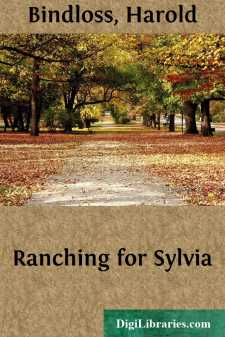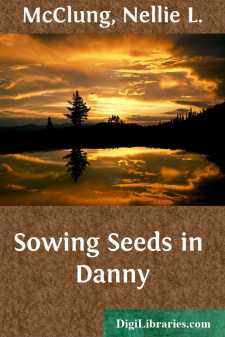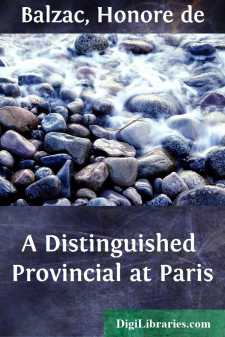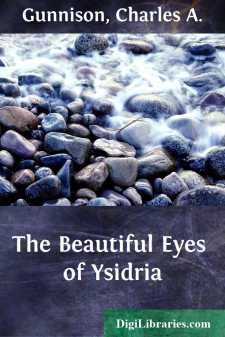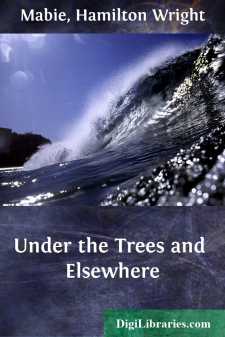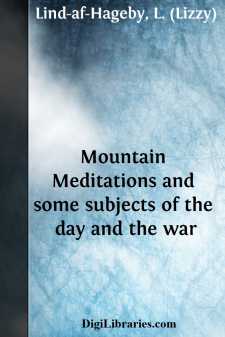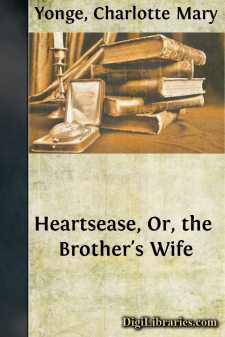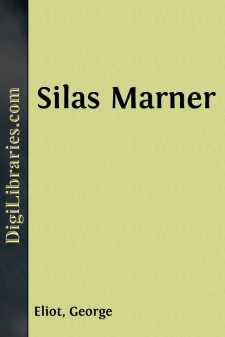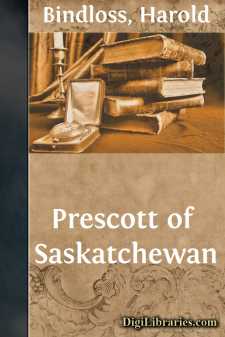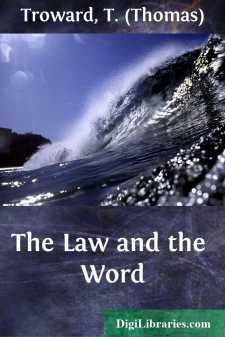Literary Collections
- American 84
- Ancient, Classical & Medieval 14
- Asian 1
- Australian & Oceanian 1
- Canadian 55
- Continental European 121
- English, Irish, Scottish, Welsh 179
- Essays 160
- General 24
- Letters 46
- Middle Eastern 1
Literary Collections Books
Sort by:
by:
Harold Bindloss
CHAPTER I A STRONG APPEAL It was evening of early summer. George Lansing sat by a window of the library at Brantholme. The house belonged to his cousin; and George, having lately reached it after traveling in haste from Norway, awaited the coming of Mrs. Sylvia Marston in an eagerly expectant mood. It was characteristic of him that his expression conveyed little hint of his feelings, for George was a...
more...
CHAPTER I In her comfortable sitting room Mrs. J. Burton Francis sat, at peace with herself and all mankind. The glory of the short winter afternoon streamed into the room and touched with new warmth and tenderness the face of a Madonna on the wall. The whole room suggested peace. The quiet elegance of its furnishings, the soft leather-bound books on the table, the dreamy face of the occupant, who sat...
more...
by:
Honore de Balzac
PART I Mme. de Bargeton and Lucien de Rubempre had left Angouleme behind, and were traveling together upon the road to Paris. Not one of the party who made that journey alluded to it afterwards; but it may be believed that an infatuated youth who had looked forward to the delights of an elopement, must have found the continual presence of Gentil, the man-servant, and Albertine, the maid, not a little...
more...
Have you seen the magnificent slope of our beloved Tamalpais, as it curves from the changing colour of the bay, till touching the fleecy fog rolling in from the Pacific, it passes from day to rest? If you have not, I hope you may, for the sooner you have this glorious picture on your memory's walls, the brighter will be your future, and you will have a bit of beauty which need not be forgotten...
more...
An April Day My study has been a dull place of late; even the open fire, which still lingers on the hearth, has failed to exorcise a certain gray and weary spirit which has somehow taken possession of the premises. As I was thinking this morning about the best way of ejecting this unwelcome inmate, it suddenly occurred to me that for some time past my study has been simply a workshop; the fire has been...
more...
MOUNTAIN-TOPSFrères de l'aigle! Aimez la montagne sauvage!Surtout à ces moments où vient un vent d'orage.Victor Hugo.I belong to the great and mystic brotherhood of mountain worshippers. We are a motley crowd drawn from all lands and all ages, and we are certainly a peculiar people. The sight and smell of the mountain affect us like nothing else on earth. In some of us they arouse...
more...
CHAPTER 1 There are none of England's daughters that bear a prouder presence. And a kingly blood sends glances up, her princely eye to trouble,And the shadow of a monarch's crown is softened in her hair. —ELIZABETH BARRETT BROWNING The sun shone slanting over a spacious park, the undulating ground here turning a broad lawn towards the beams that silvered every blade of grass; there, curving...
more...
by:
George Eliot
CHAPTER I In the days when the spinning-wheels hummed busily in the farmhouses—and even great ladies, clothed in silk and thread-lace, had their toy spinning-wheels of polished oak—there might be seen in districts far away among the lanes, or deep in the bosom of the hills, certain pallid undersized men, who, by the side of the brawny country-folk, looked like the remnants of a disinherited race....
more...
by:
Harold Bindloss
CHAPTER I JERNYNGHAM’S HAPPY THOUGHT The air was cooling down toward evening at Sebastian, where an unpicturesque collection of wooden houses stand upon a branch line on the Canadian prairie. The place is not attractive during the earlier portion of the short northern summer, when for the greater part of every week it lies sweltering in heat, in spite of the strong west winds that drive dust-clouds...
more...
CHAPTER I If I were asked what, in my opinion, distinguishes the thought of the present day from that of a previous generation, I should feel inclined to say, it is the fact that people are beginning to realize that Thought is a power in itself, one of the great forces of the Universe, and ultimately the greatest of forces, directing all the others. This idea seems to be, as the French say, "in the...
more...


